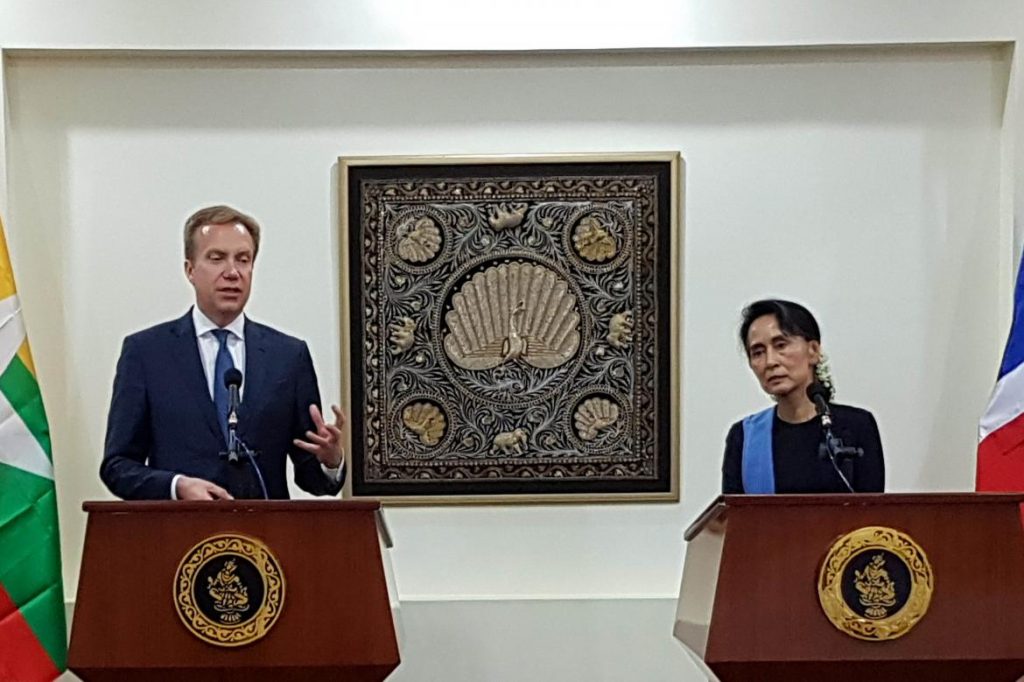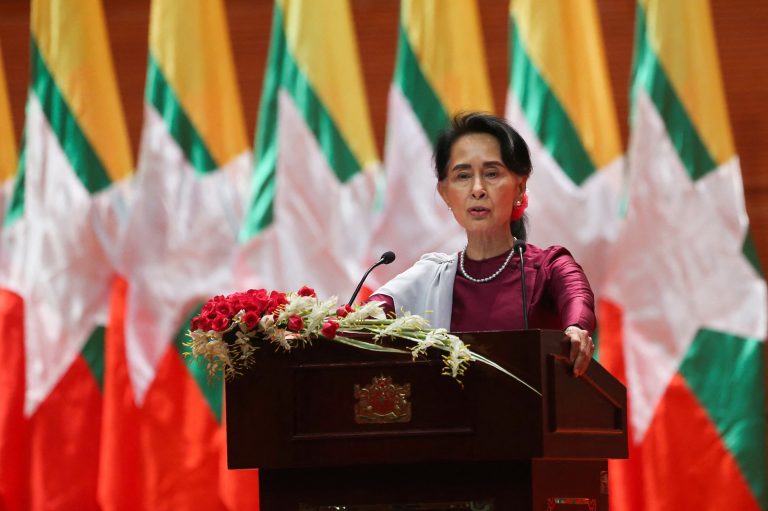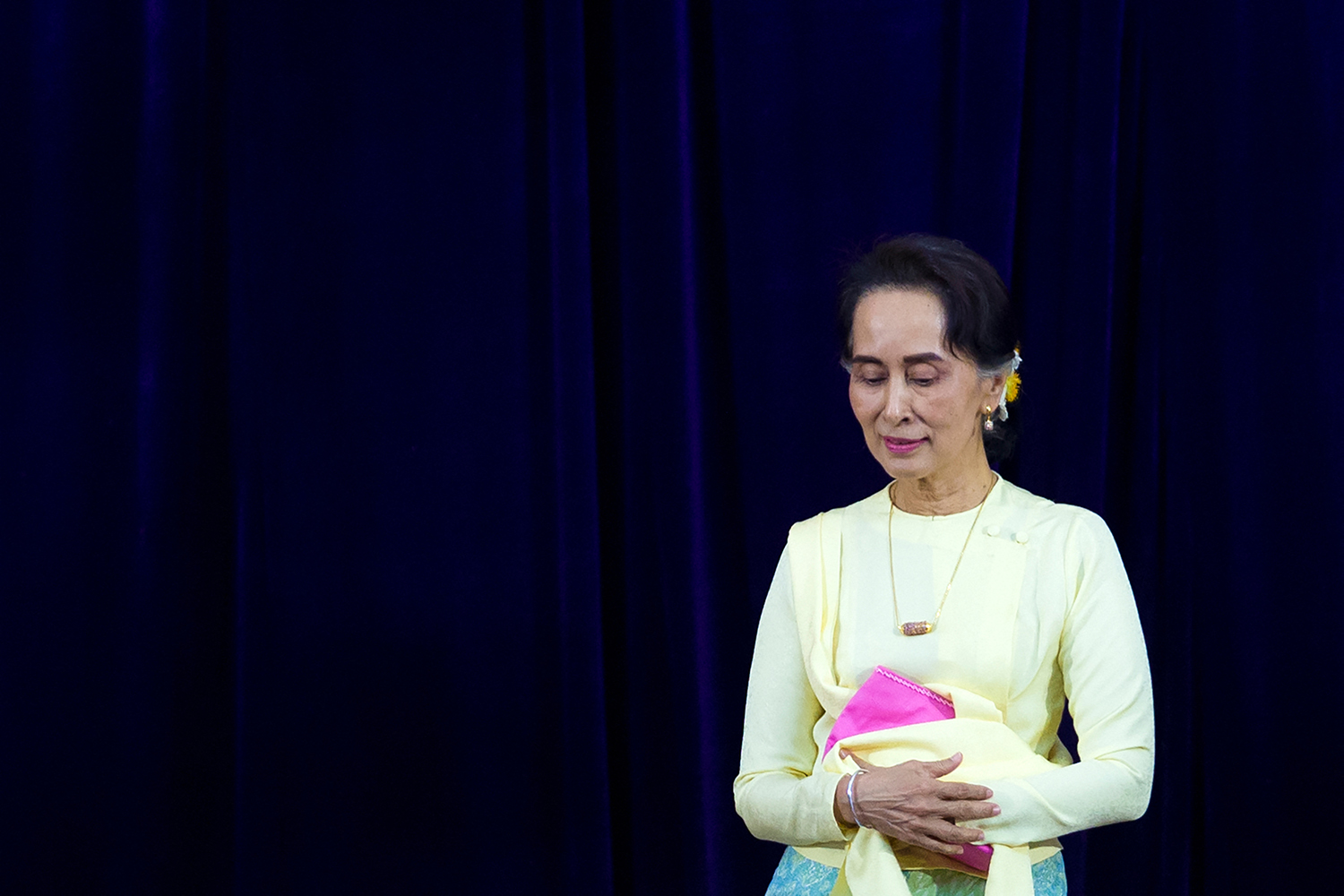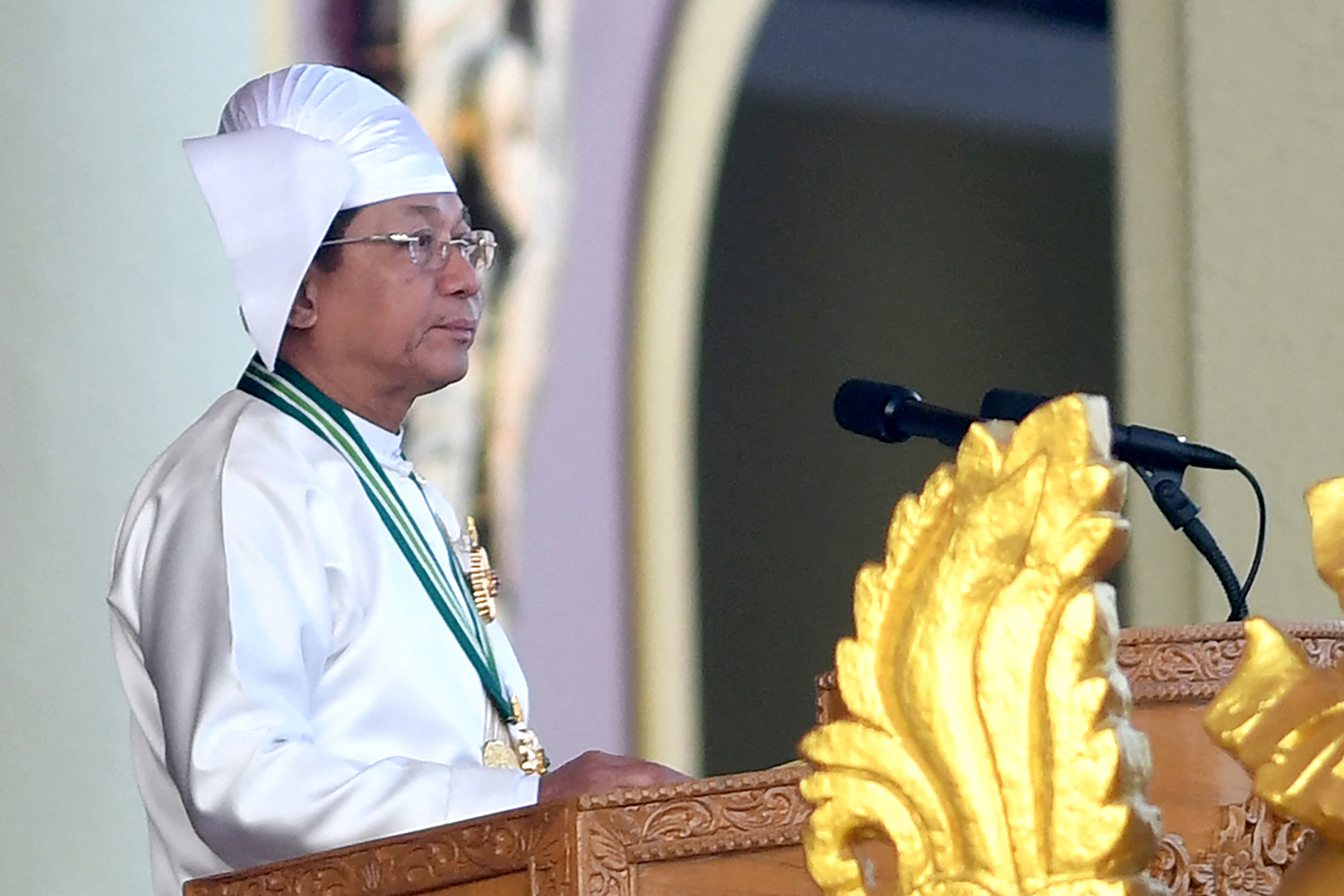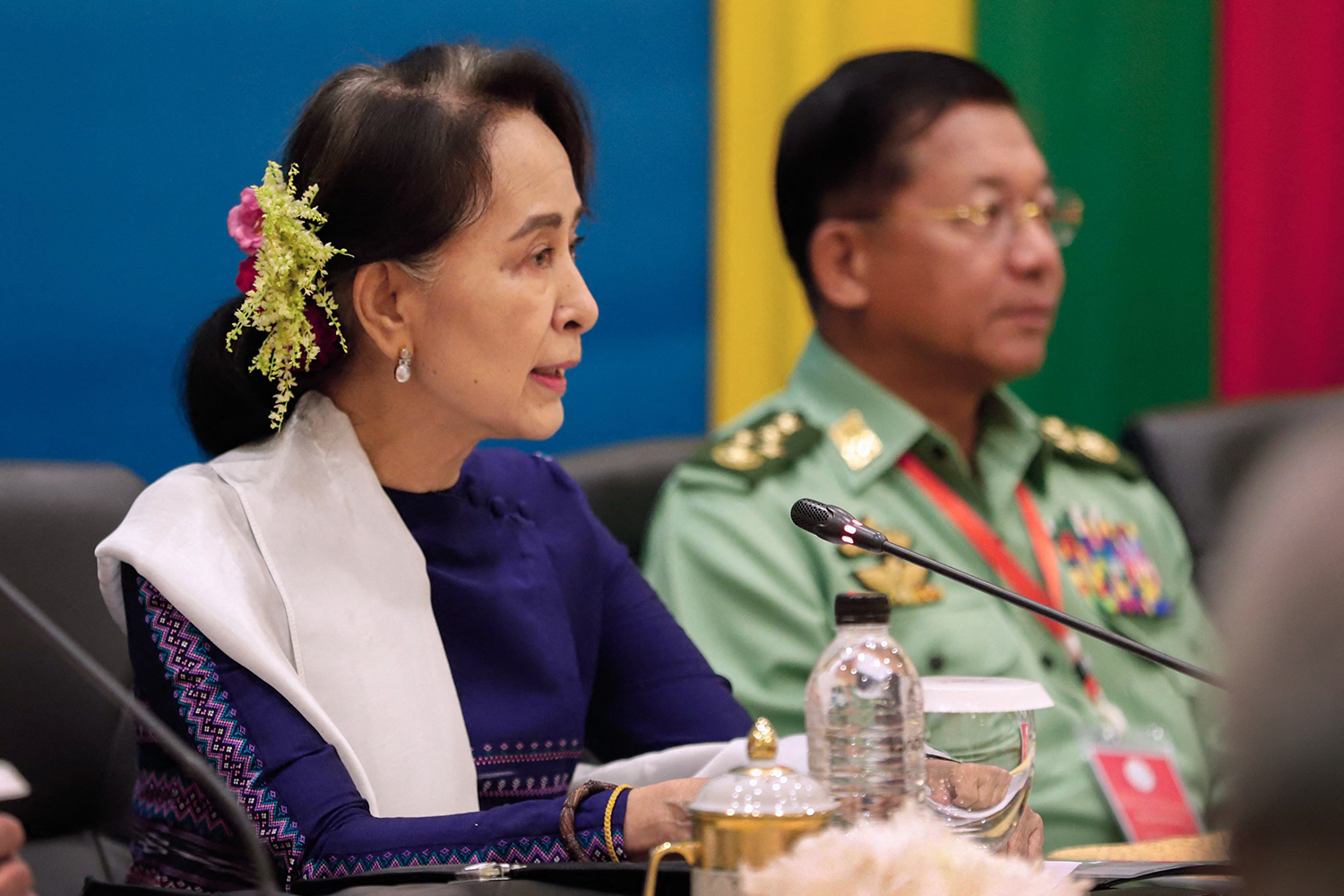By THOMAS KEAN | FRONTIER
NAY PYI TAW — State Counsellor Daw Aung San Suu Kyi has refused to condemn the recent arrest of three journalists, saying that her government could not interfere with the judicial process.
Speaking at a press conference today with Norwegian Foreign Minister Mr Børge Brende, she said the case “should not be seen very narrowly as three journalists against the army or vice versa but in general as to whether the existing laws now are in line with our desire for justice and democratisation”.
If the laws are not just, then “we must go through the due process of amending the laws through the legislature and we have to make sure of course that our courts are bursting with integrity,” she said, before bursting into laughter.
One reporter from The Irrawaddy and two from DVB were arrested by the military in northern Shan State on June 26 while returning from an event organised by the Ta’ang National Liberation Army.
Support more independent journalism like this. Sign up to be a Frontier member.
They are expected to face charges under the Unlawful Associations Act that carry a minimum two-year prison term.
The July 11 preliminary hearing for the trio, who are being held in custody in Hsipaw, was this week transferred to the township court in Namhsan, where travel restrictions are in effect.
While colleagues have been granted limited access to the detained men, several efforts to meet with the reporters have been rebuffed by prison authorities.
State lawmaker Nang San San Aye (SNLD, Hsipaw-1), filed a request to meet with the trio on June 29. Officials sent a notice denying her request on Wednesday because she was not a family member of the accused.
Aung San Suu Kyi, who also holds the foreign minister post, had tried to stop journalists from asking about the arrests at Thursday’s press conference, initially insisting that questions only relate to the foreign minister’s visit.
However, she eventually relented and was asked directly whether the arrests were “in line with the rule of law”.
She responded, “Well, rule of law means that they have to have first of all just law. Our term for rule of law in Myanmar is not rule of law but rule of just law. So we actually make sure that the laws are just. And if any … sectors of the public feel that the laws are unjust then these laws can be amended by the parliament.”
She also touched on proposed amendments to section 66(d) of the Telecommunications Law, which carries a potential three-year prison term for those convicted of online defamation.
“The legislature is considering amendments to that particular law,” Aung San Suu Kyi said.
Standing beside the state counsellor, Brende said he welcomed her commitment to “freedom of speech and also freedom of the journalists”.
“I know that this is something that the state counsellor cares a lot about but it’s also important that one complies with these principles from all sides in Myanmar,” he said.
He added that his discussions with Aung San Suu Kyi focused on a range of issues, including the peace process, recent developments in Rakhine State and regional issues. During his visit Brende has signed or will sign memorandums of understanding on fisheries and aquaculture, and allocating revenues from energy resources.
On Rakhine, he said it was “very important” that the government moved forward with implementing recommendations from the Rakhine State Advisory Commission headed by former United Nations secretary-general Mr Kofi Annan.
“There needs a reconciliation process and both the communities, the Muslim community but also the Buddhist community, needs to break the impasse,” he said.
While describing the 21st Century Panglong Union Peace Conference that took place in late May as important, Brende said there were still many challenges for the peace process.
“Norway will continue to support a path towards a real peace and reconciliation process also with the groups that have not signed [the nationwide ceasefire agreement] yet.”
Additional reporting by Steve Tickner and Htun Khaing.


